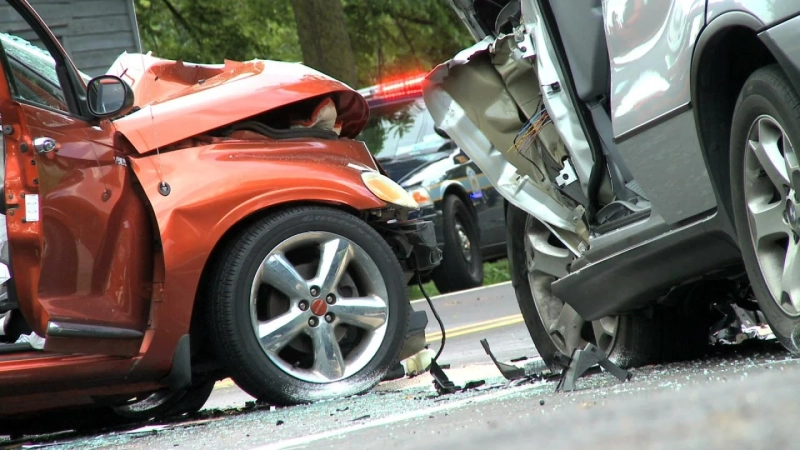People involved in road traffic accidents often want to make a compensation claim. However, many of them are unsure where to start. Typically, you can make a claim for economic damages for things like your medical bills and lost income. However, non-economic damages are also available for pain and suffering.
What is compensation?
In the event of a road traffic accident, victims may be entitled to compensation to cover the costs incurred as a result of their injuries. This includes medical bills, loss of income and property damage. Compensation is designed to put crash victims back into the position they were in before their accident, taking into account their future prognosis.
Every road user has a duty of care to try to protect others and prevent them from being hurt while using the road. If someone breaches their duty and causes an accident that results in injury, it is possible to pursue a claim against them through their liability insurance.
There are many types of accidents that can occur on the road. These include rear-end collisions where a driver fails to check behind them and hits the car in front, side-on collisions that can occur when a person crosses over lanes of traffic without checking for oncoming vehicles and T-bone collisions that often happen at intersections when a driver runs a red light or stop sign.
All of these accidents can lead to serious injuries that will have an impact on your life both physically and emotionally, and it is possible to make a claim for compensation even if you were partially responsible for the crash. However, this is a complicated area of law, and it is always advisable to seek expert legal advice.
How do I claim?
If you are injured in a car accident that was not your fault, it is very likely that you will be entitled to compensation. However, proving that you have suffered losses and expenses related to your accident is not always straightforward and you will need a wealth of evidence to support your claim. This may include medical documentation of your injuries, witness testimonies and pictures of the scene.
If liability is clear, then the insurer will usually be willing to offer a fair settlement without going to court and this can save time and expense. In cases where liability is not clear, a court case may be necessary to recover additional damages.
When you receive a compensation award, it will usually be made up of two parts: general damages and special damages. General damages are based on your pain and suffering, including physical and mental injury. They also take into account any impact on your quality of life, such as loss of amenity.
It’s important to note that you are not only entitled to compensation for injuries suffered by yourself, but also if you are a passenger in a vehicle that is involved in a crash. In addition, if the accident was not your fault and was caused by poor road conditions, you can make a claim against the responsible body – such as a local authority or highways organisation.
Who is responsible?
The at-fault driver will be responsible for paying compensation to anyone they have injured or whose property has been damaged in the accident. This is provided that they complied with state law and had appropriate insurance coverage in place.
To make a claim, it’s important to gather as much evidence as possible. This could include the contact details of any witnesses, as well as a copy of any dashcam footage that captured the accident. It’s also worth noting any expenses you have incurred as a result of the crash, including medical bills and travel costs to appointments. You may be able to claim for lost future earnings as well as loss of quality of life, such as when you are unable to participate in hobbies or socialise.
Demonstrating legal responsibility requires that you can prove negligence and causation. This means proving that the other driver broke a traffic rule and drove with unreasonable carelessness. This caused the collision and your injuries.
This is a complex area of law and requires an experienced lawyer to assess the evidence and argue your case in court. An expert attorney can help you get the maximum amount of damages available for your accident. They can also ensure that any settlement offered by the at-fault driver meets your needs, taking into account any long-term effects of your injuries.
How much can I claim?
Typically, you can claim compensation for both your injuries and any financial costs you have incurred as a result of the crash. These are known as ‘economic damages’ and include medical expenses, loss of earnings, and property damage. You can also seek non-economic compensation for pain and suffering and loss of quality of life.
When calculating your settlement amount, the severity of your injury will play a large part. In addition, how long you will be unable to work due to your injuries will be taken into account. Providing your solicitor with all the relevant documentation will help you to achieve a fair and appropriate settlement. This will include doctor’s notes, wage documents and a letter from your employer.
Other evidence such as photos of the scene of the accident, witness testimonies and dash cam footage may be beneficial in proving your case. It will also help your solicitor to make a strong case on your behalf, especially if the other driver is disputing liability.
In addition to the above, your solicitor will use their knowledge and experience of dealing with car accidents to build a compelling case for you. If they successfully negotiate a settlement, they will be paid through what is known as a Conditional Fee Agreement (CFA). This means that you will not have to pay your solicitor any upfront fees and only pay them when you receive compensation.


